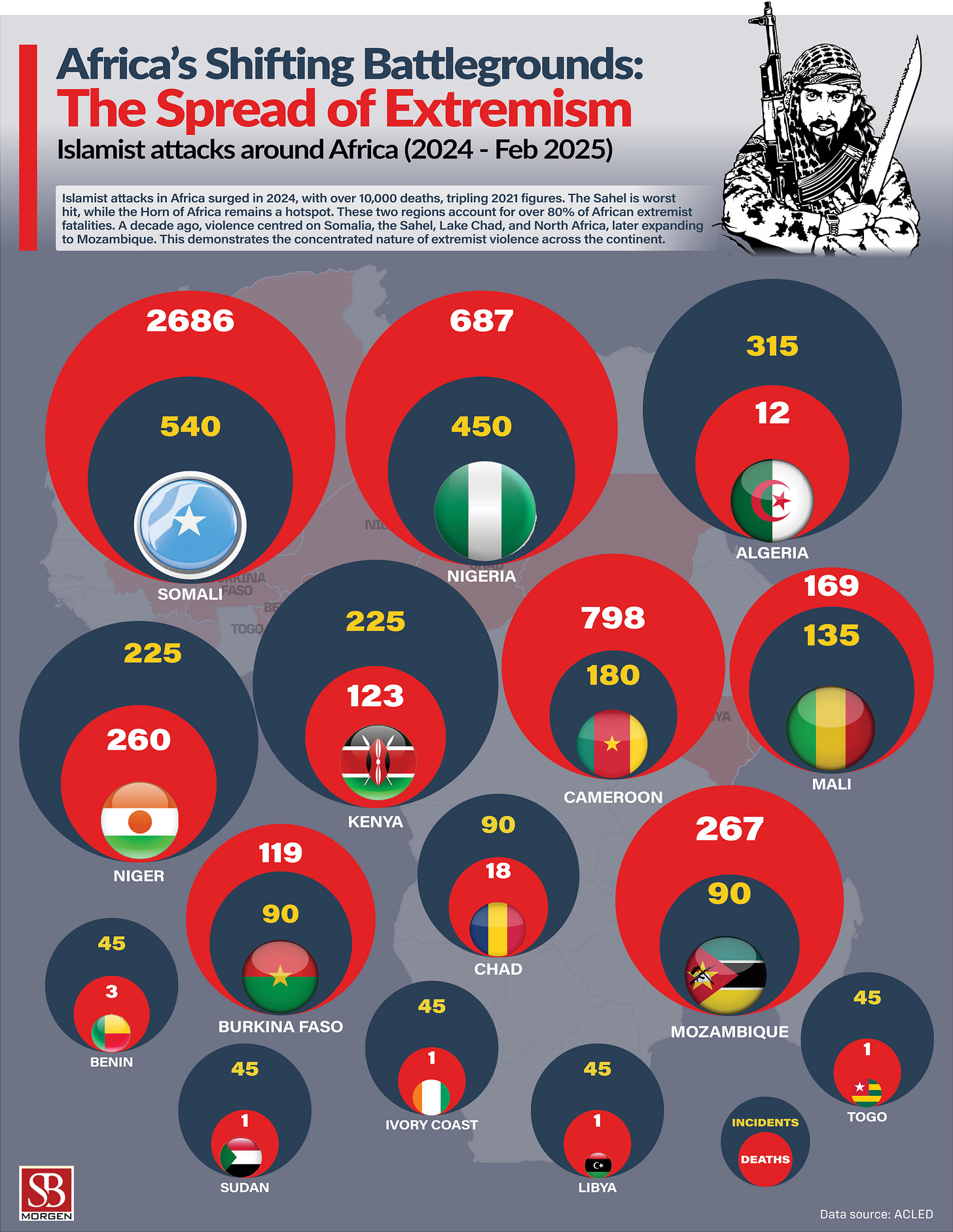Checkmate in two moves
Nigeria arrested two senior Ansaru terrorist leaders linked to Al-Qaeda and a major prison break, while also restructuring its army command for greater efficiency.
Nigeria’s National Security Adviser has confirmed the arrest of two senior Ansaru leaders, linked to Al-Qaeda and implicated in a 2022 prison break that freed hundreds, including militants. While identities and arrest locations remain undisclosed, the operation marks a key advance in counter-terrorism efforts against the group, which has ties to Boko Haram. Simultaneously, the Nigerian Army has redeployed several senior officers, including major-generals, as part of a strategic restructuring to enhance command efficiency. Key appointments include Major Generals Abubakar, Ahmed, and Aiyenigba. The Chief of Army Staff emphasised that the reshuffle aligns with operational demands and recent security assessments across military formations.
While the NSA’s announcement positions the detentions as a significant milestone, the lack of detail (no names, no locations, no indications of follow-on prosecutions) means that the arrests risk being viewed more as symbolic than strategic. Nigeria’s recent history is littered with announcements of high-profile captures that rarely translate into durable disruption of militant capacity. Without transparent prosecution and demonstrable weakening of Ansaru’s networks, the arrests may deliver more to the optics of counterterrorism than to its long-term substance.
The arrests coincided with a sweeping redeployment of senior army officers. This reshuffle is officially being sold as a bid to improve operational effectiveness and inject fresh leadership into critical commands. While it reflects both a recognition of Nigeria’s persistent security gaps and a desire to project institutional renewal in the face of public frustration with ongoing violence, the reshuffle risks becoming no more than a cosmetic exercise.
Taken together, the arrests and the reshuffle highlight two sides of Nigeria’s security strategy: episodic tactical successes and structural attempts at organisational reform. Yet both efforts face the same challenge: sustainability. Arresting militant leaders is valuable, but groups like Ansaru thrive in environments of weak governance, porous borders, and local disaffection, conditions which arrests alone cannot resolve. Similarly, reshuffling generals may temporarily energise commands, but without improvements in training, logistics, troop welfare, and civilian-security relations, it risks being another cycle of bureaucratic motion without lasting effect.
It is important to remember that Ansaru is Boko Haram’s first breakaway faction, splitting from the group in 2012 after the Fulani fighters in the old Boko Haram accused Abubakar Shekau of favouring his co-ethnic Kanuri fighters over the Fulanis. Khaled Al-Barnawi led the split, took his faction, and headed West, settling in Kogi. One of their first public acts was an attack on a Nigerian troop contingent preparing to support international counterterrorism operations against Al-Qaeda allied Islamists in Northern Mali. Al-Barnawi himself was arrested by the State Security Services in Lokoja in 2016, forcing the group to go underground until they resurfaced in Birnin-Gwari in Kaduna in 2020.
In the past year, the group have been reportedly staging operations in and around Lokoja, where they have extorted money from elites plying the Abuja-Lokoja highway. In the past decade plus, they have been the key Al-Qaeda affiliate in Nigeria, collaborating with other Islamist and bandit groups for big operations such as the attack on the AK-9 Abuja-Kaduna train in March 2022.
Mr Ribadu’s refusal to state where the kingpins were arrested leaves more questions than answers. For one, it could indicate that the government does not want to admit how far-reaching the group’s operations have been since their ouster from their group headquarters in Damari. Furthermore, but on the other hand, it could be down to the need to maintain operational secrecy as the efforts to rein in the group, along with Mahmuda, whose excesses have displaced communities in Kwara, may be ongoing.
This also ties in with the deployment of military chiefs–Ribadu’s announcement at the same time as these deployments indicates that pressure is growing on the government for its perceived poor handling of the security crisis. The military, in particular, has not covered itself in glory in their handling of the Mahmuda group in Kwara, which they launched a three-week operation against in early 2025, after which the militants returned. Historically, redeployments have not led to better security outcomes, and as such, we do not expect this to be any different.


